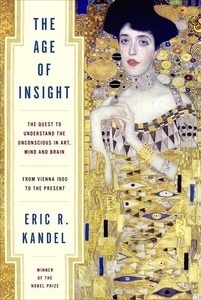The Age of Insight
. The Quest to Understand the Unconscious in Art, Mind, and Brain, from Vienna 1900 to the Present

Editorial Random House USA
Fecha de edición marzo 2012 · Edición nº 1
Idioma español
EAN 9781400068715
656 páginas
Libro
encuadernado en tapa dura
Resumen del libro
A brilliant book by Nobel Prize winner Eric R. Kandel, The Age of Insight takes us to Vienna 1900, where leaders in science, medicine, and art began a revolution that changed forever how we think about the human mind our conscious and unconscious thoughts and emotions and how mind and brain relate to art.
At the turn of the century, Vienna was the cultural capital of Europe. Artists and scientists met in glittering salons, where they freely exchanged ideas that led to revolutionary breakthroughs in psychology, brain science, literature, and art. Kandel takes us into the world of Vienna to trace, in rich and rewarding detail, the ideas and advances made then, and their enduring influence today.
The Vienna School of Medicine led the way with its realization that truth lies hidden beneath the surface. That principle infused Viennese culture and strongly influenced the other pioneers of Vienna 1900. Sigmund Freud shocked the world with his insights into how our everyday unconscious aggressive and erotic desires are repressed and disguised in symbols, dreams, and behavior. Arthur Schnitzler revealed women's unconscious sexuality in his novels through his innovative use of the interior monologue. Gustav Klimt, Oscar Kokoschka, and Egon Schiele created startlingly evocative and honest portraits that expressed unconscious lust, desire, anxiety, and the fear of death.
Biografía del autor
Eric R. Kandel es profesor del Departamento de Bioquímica y Biofísica Molecular y en el Departamento de Psiquiatría dela Universidad de Columbia, así como investigador senior en el Howard Hughes Medical Institute. También es fundador director del Centro de Neurobiología y Conducta del Colegio de Médicos y Cirujanos dela Universidad de Columbia. Su obra ha merecido diversos premios, entre los que se cuentan: el Premio Albert Lasker en Investigación Médica Básica, 1983;la Medalla Nacionaldela Cienciaotorgada por el presidente Reagan en 1988; el Premio Gairdner International por sus aportaciones a la ciencia médica, 1987; el Premio Wolf en 1999; el Premio Heineken en 2000; y el Premio Nobel de Fisiología / Medicina en 2000 (junto con A. Carlson y P. Greengard).








